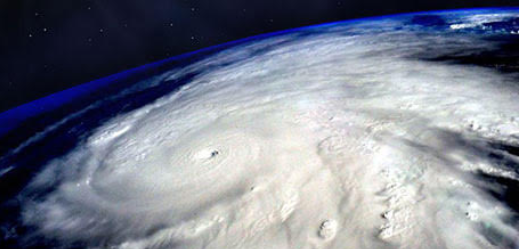|
Precautionary measures can temper the ravages of these destructive storms Disasters + PreparednessHow to prepare for hurricane seasonPrecautionary measures can temper the ravages of these destructive storms Don't wait until a hurricane watch is issued, because it may already be too late to take certain precautions. Reduce property damage and get through any hurricane emergency with less stress by preparing before the season begins. 1. Plan your evacuation route well ahead of time If you live on the coast or in a mobile home, you may have to evacuate in the event of a major storm. While you'll no doubt get instructions from the local government, it's wise to create your evacuation plan well before a disaster strikes. This way, you can know ahead of time about the nearest shelters, take your pets into account in your plan, make sure to take important papers and make a trial run. 2. Keep non-perishable emergency supplies on hand When a hurricane warning is issued, people run for the stores. As much as possible, get ahead of the rush having the following on hand:
3. Take an inventory of your personal property Creating a home inventory will help ensure that you have purchased enough insurance to replace your personal possessions. It can also speed the claims process, substantiate losses for income tax purposes and is helpful should you need to apply for disaster aid. In the event you need to evacuate, be sure your home inventory is among the important documents you take with you. 4. Review your insurance policies This hurricane season insurance checklist can help you to understand your coverage and whether it’s adequate to repair or rebuild your home, if necessary, and to replace your belongings Keep in mind that your homeowners insurance covers the cost of temporary repairs for hurricane damage, as well as reasonable additional living expenses (ALE) over and above your normal living expenses if you have to relocate (such as the extra expense of getting to work or to school if your temporary home is in a different community). However, your homeowners policy doesn’t cover flood damage, so you may want to consider looking into flood insurance. If you live by the coast, you may also need a separate policy for protection against wind and wind-blown water damage. If you have questions about what your current policy will cover or need to augment your current coverage, contact your insurance professional. 5. Take steps to protect your home Hurricane force winds can turn landscaping materials into missiles that can break windows and doors and much of the property damage associated with hurricanes occurs after the windstorm when rain enters structures through broken windows, doors and openings in the roof. While retrofitting your home to protect against these possibilities is undoubtedly an expense, you can do it in stages.
Hurricanes take a toll on businesses, too so be prepared.
Additional resources I
0 Comments
Leave a Reply. |






 RSS Feed
RSS Feed